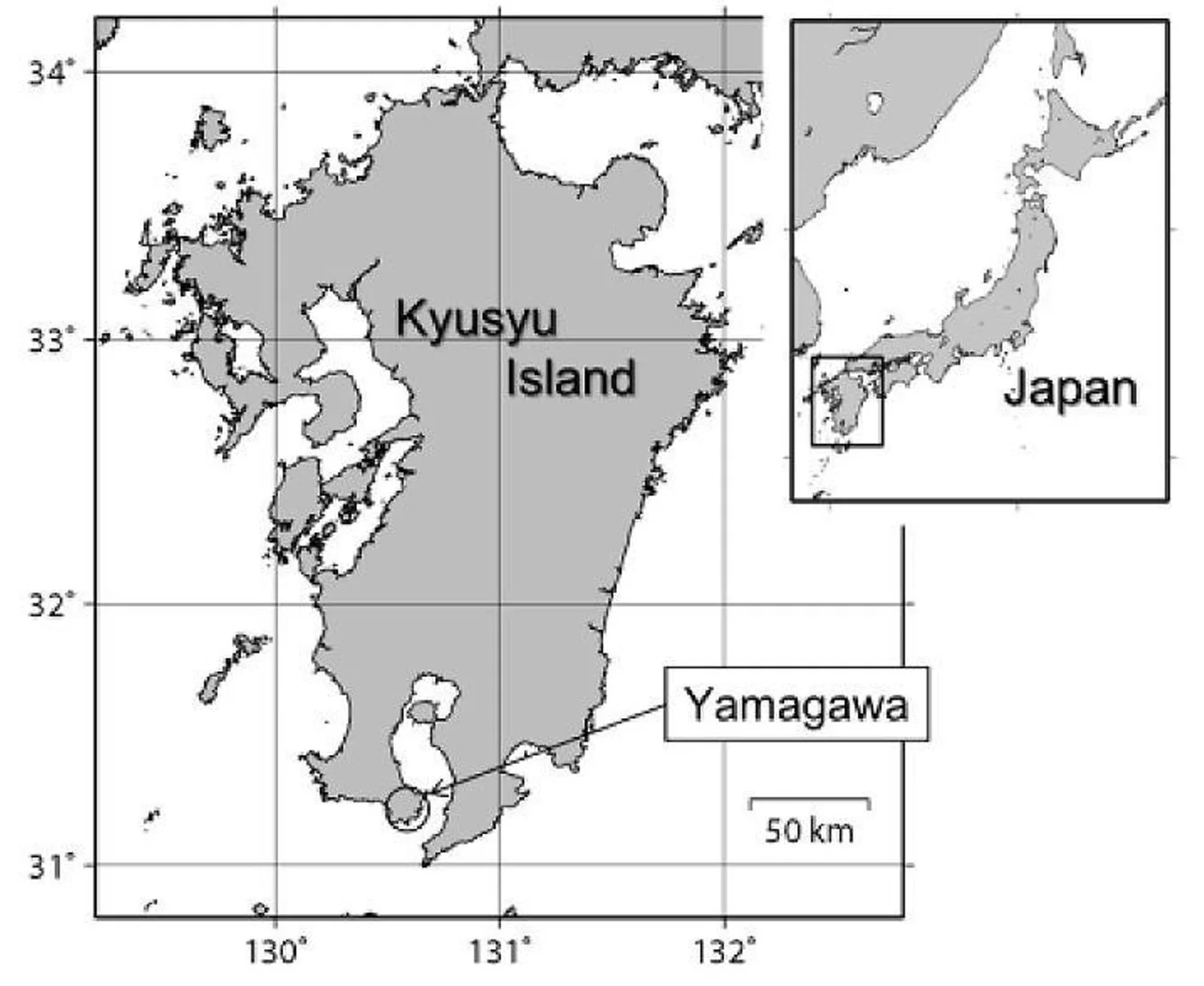CASE STUDY: Yamagawa Geothermal Project
Joint Inversion of Multiphysics Data in Yamagawa Geothermal Area
Endo, M, A. Gribenko, D. Sunwall, M. S. Zhdanov, T. Miura, H. Mochinaga, N. Aoki, and T. Mouri, 2018, Integrated interpretation of multimodal geophysical data for exploration of geothermal resources – Case study: Yamagawa geothermal field in Japan: SEG Technical Program Expanded Abstracts, 1949-4645
Japan Oil, Gas and Metals National Corporation (JOGMEC) has been developing the proper geophysical interpretation technology for exploration and appraisal of geothermal resources in Japan, and has conducted a wide variety of geophysical surveys in Yamagawa geothermal field, Japan
Geophysical data acquired in Yamagawa geothermal field:
— Magnetotelluric data
— Gravity data
— Magnetic data
— Seismic data
Magnetotelluric (MT) data:
New Energy and Industrial Technology Development Organization (NEDO) acquired
— Total 134 stations (red)
— Impedance tensors processed using remote reference station data 40 frequencies from 0.00055 to 374 Hz
Ibusuki City acquired in 2015
— Total 25 stations (blue)
— 40 frequencies from 0.0034 to 320 Hz
Gravity and Magnetic Data:
Seismic Data
3D Seismic reflection and refraction data acquired by JOGMEC in 2013
3D seismic velocity model
Seismic surfaces
— Top of Nansatsu formation
— Top of Dacite
— Near-surface high velocity volume
Seismic surfaces
Seismic velocity model
Vertical sections of 3D resistivity and density models produced by the joint inversion
Recovered resistivity overlaid with recovered magnetization vector
Recovered density overlaid with recovered magnetization vector









